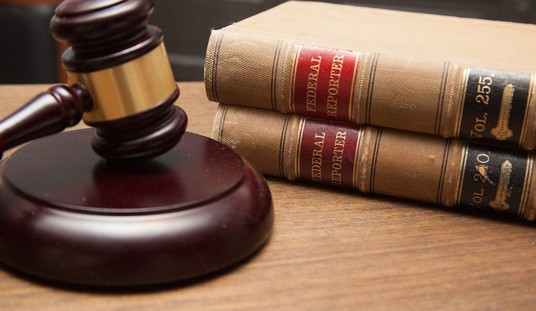City council members in Washington, D.C. approved two gun control bills on Tuesday, including a ban on the possession and manufacture of so-called “ghost guns,” or firearms that do not have a serial number.
The Ghost Guns Prohibition Emergency Amendment Act of 2020 was approved as an emergency bill, meaning it will remain in effect for the next 90 days while city council members work on a permanent ordinance. In a press release, D.C. council member Charles Allen claimed the measure will help prevent violent crime in the District.
“These guns attempt to circumvent the hard fought and carefully considered gun safety laws of the District of Columbia,” said Councilmember Allen. “We know they are used in violent crimes. They’re not for hobbyists or collectors. They’re being used for one purpose: to inflict harm in our communities.”
In just one year, between 2018 and 2019, the District saw a 364 percent increase in the recovery of ghost guns. In 2017, the Metropolitan Police Department recovered only three ghost guns in the District; in 2018, 25 ghost guns were recovered; and in 2019, 116 ghost guns were recovered. In just the first six weeks of this year, 28 ghost guns have already been recovered. The types of ghost guns recovered in the District include handguns and rifles, including assault weapons such as AR-15s.
I’d expect this law to be challenged in court, and one of the arguments I’d make is that, because the District has no actual gun stores where residents can legally purchase firearms, their right to keep and bear arms is being curtailed if they cannot build a firearm, including using 80% lower receivers that gun owners finish themselves.
Beyond any potential litigation, however, the emergency ordinance is absolutely useless as far as preventing crime. How will law enforcement know that someone is building a “ghost gun,” for example? They won’t. Besides, the District already makes it a crime to possess an unregistered firearm, so making possession of unserialized firearms a crime is somewhat redundant. No “ghost gun” is registered in the District of Columbia. If they were, they wouldn’t be a “ghost gun” in the first place.
The second bill approved as an emergency ordinance establishes a working group to figure out how the District can start using it’s “red flag” gun seizure law more frequently. Councilman Allen noted that in Maryland, the law is being used far more often than it is in D.C.
“Red flag laws – if implemented well – prevent self-harm and harm to others, including in suicide, domestic violence, and – importantly – community violence situations,” said Councilmember Allen. “They’re not only for legally possessed guns; we have a relatively small number of legally possessed guns in the District – most are illegally possessed. Our law also has a very important provision: if your unregistered gun is surrendered or taken through an extreme risk protection order, you can’t be arrested or prosecuted for having possessed or carried that gun or ammunition. You don’t get immunity, however, if the gun was used in a prior crime.”
Between October 1, 2018 and August 7, 2019, Maryland’s courts received approximately 788 requests for extreme risk protection orders. Between March and July 2019, Florida’s red flag law was used nearly 2,400 times. Many jurisdictions have successfully coordinated government agencies, non-governmental organizations, and community advocates to drive effective implementation and save lives, but the District lags significantly behind. Since the District’s red flag law took effect, only two petitions have been granted.
Perhaps the District has only used the law twice because there hasn’t been a need for it. It looks like council members are less concerned about potential abuses with the law and simply want to see more people have their firearms taken away, regardless of whether or not they actually pose a threat to themselves or others.
Neither of these bills will do anything to make the District of Columbia safer, but they’ve already served their purpose: allowing city council members like Charles Allen to issue press releases promoting the fact that they did “something.”









Join the conversation as a VIP Member